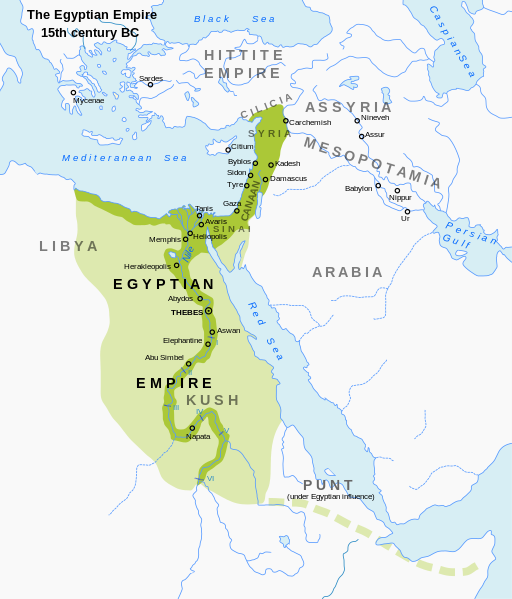It must be clear to any thinking person (i.e. a person not blinded by faith) that the Exodus story is an origin myth, that is, the sort of heroic story that is told to explain the how a certain human society got its start. You can read about origin myths (sometimes also called foundation myths) in this Wikipedia entry - http://en.wikipedia.org/wiki/Origin_myth
In any of these mythical stories, there will be some elements of historical truth. Can we find anything truthful in the Exodus/Moses story. Yes, we can. It is simply that there is/was a connection between the ancient Egyptian Empire, a human society that was so well organised, that they were able to build the huge monuments of ancient Egypt.
In contrast, the group of people that later became the Israelites and later still the Jews, were a barely organised group living in Palestine. Did some of them really travel to Egypt as described in the biblical myth? Actually, they did not have to, as the Egyptian empire came to them, by conquering Palestine.
Here's a map of the Egyptian empire around the mid fifteenth century BCE.
Reference: http://commons.wikimedia.org/wiki/File:Egypt_NK_edit.svg
Jerusalem was not in existence at that time, but the Egyptian influence extended from the coast to the areas which later became the focus of Israelite mythology.
Now think of this description of Moses in Acts 7:20-22 NIV.
20 “At that time Moses was born, and he was no ordinary child.[a] For three months he was cared for by his family. 21 When he was placed outside, Pharaoh’s daughter took him and brought him up as her own son. 22 Moses was educated in all the wisdom of the Egyptians and was powerful in speech and action.
Footnote: Acts 7:20 Or was fair in the sight of God
There is dispute over the time when Moses was born (if, indeed, there is any historical truth behind the story). The Watchtower publication, Aid to Bible Understanding (p.1180) suggest he was born around 1593 BCE. That date is suggested by the early Christian writer, Jerome. Bishop Ussher (he of the 6000 years idea), calculated 1571 BCE. But the Rabbinical Jewish scholars (subsequent to the destruction of the temple in 70CE) calculated that he lived between 1391 and 1271BCE.
The date calculated by the Rabbinical scholars is interesting. Why? Because that would locate the Exodus events as being around the time of the huge religious crisis in Egypt caused by the monotheistical ideas of the Pharoah who changed his name to Akhenaten ( who died around 1336-1334 BCE). Here he is as represented in a plaque from that era, worshipping Aten.
Reference: http://upload.wikimedia.org/wikipedia/commons/e/e4/Aten_disk.jpg
and, http://en.wikipedia.org/wiki/Akhenaten
Does this explain Moses, educated in all the wisdom of the Egyptians,
denouncing the Bull worshipping Israelites? So difficult to prove but a possibility.
Egyptologists also point out the similarity between Egyptian concepts of creation and Genesis ch 1.
So Moses, meek or not meek, as the case may be, real or mythical serves to link teh Canaanite tribes who led a war that eventually gave them primacy in Canaan and led to the need for foundational myths, which, of course, when early Christianity was just another Jewish sect became embedded in a religion that became the main myth bearer of powerful European colonisers.



